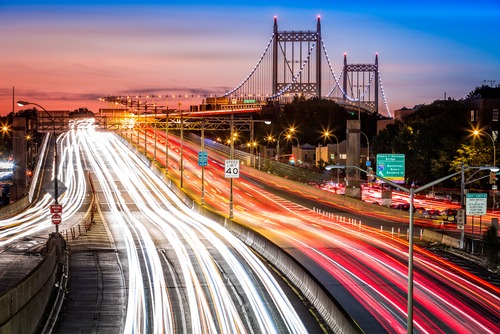
President Joe Biden announced he and a group of more than 20 Congressmembers had reached a deal on a new $1.2 trillion bipartisan infrastructure package.
The Bipartisan Infrastructure Framework is the largest long-term investment in America’s infrastructure in nearly a century, Biden’s office said in a statement. It is designed to boost the economy while making it more “sustainable, resilient, and just.”
“The Plan makes transformational and historic investments in clean transportation infrastructure, clean water infrastructure, universal broadband infrastructure, clean power infrastructure, remediation of legacy pollution, and resilience to the changing climate. Cumulatively across these areas, the Framework invests two-thirds of the resources that the President proposed in his American Jobs Plan,” the White House said in a statement.
According to White House documents, the plan provides for $312 billion for transportation projects, $109 billion on roads and bridges, and $66 billion on passenger and freight rail. The plan also spends $49 billion on public transit, $7.5 billion on electric vehicle infrastructure and electrification of buses and transit, $25 billion on airports, and $16 billion on ports & waterways.
The deal encompasses the largest dedicated bridge investment since the construction of the interstate highway system, the administration said, and is the largest investment into EV infrastructure in history. Additionally, the plan is the largest investment in public transit in history and the largest investment in passenger rail since the creation of Amtrak.
The legislation creates a first-of-its-kind Infrastructure Financing Authority that will leverage billions of dollars to pay for the plan. In addition, the deal will reduce the IRS tax gap, redirect unused unemployment insurance relief funds and unused relief funds from the 2020 emergency relief legislation, as well as rely on public-private partnerships, private activity bonds, direct pay bonds, and asset recycling.
The administration worked on the deal with U.S. Sens. Mark Warner (D-VA), Richard Burr (R-NC), Bill Cassidy (R-LA), Susan Collins (R-ME), Chris Coons (D-DE), Lindsey Graham (R-SC), Maggie Hassan (D-NH), John Hickenlooper (D-CO), Mark Kelly (D-AZ), Angus King (I-ME), Joe Manchin (D-WV), Jerry Moran (R-KS), Lisa Murkowski (R-AK), Rob Portman (R-OH), Mitt Romney (R-UT), Mike Rounds (R-SD), Jeanne Shaheen (D-NH), Kyrsten Sinema (D-AZ), Jon Tester (D-MT), Thom Tillis (R-NC), and Todd Young (R-IN).
“Today, we’re proud to advance this bipartisan proposal to make a historic investment in America’s critical infrastructure needs, advance cleaner technologies, create jobs, and strengthen American competitiveness, without raising taxes,” the senators said in a statement. “This agreement shows that the two parties can still come together, find common ground, and get things done that matter to everyday Americans. We are happy to have President Biden’s support and will now get to work enlisting the support of colleagues on both sides of the aisle.”